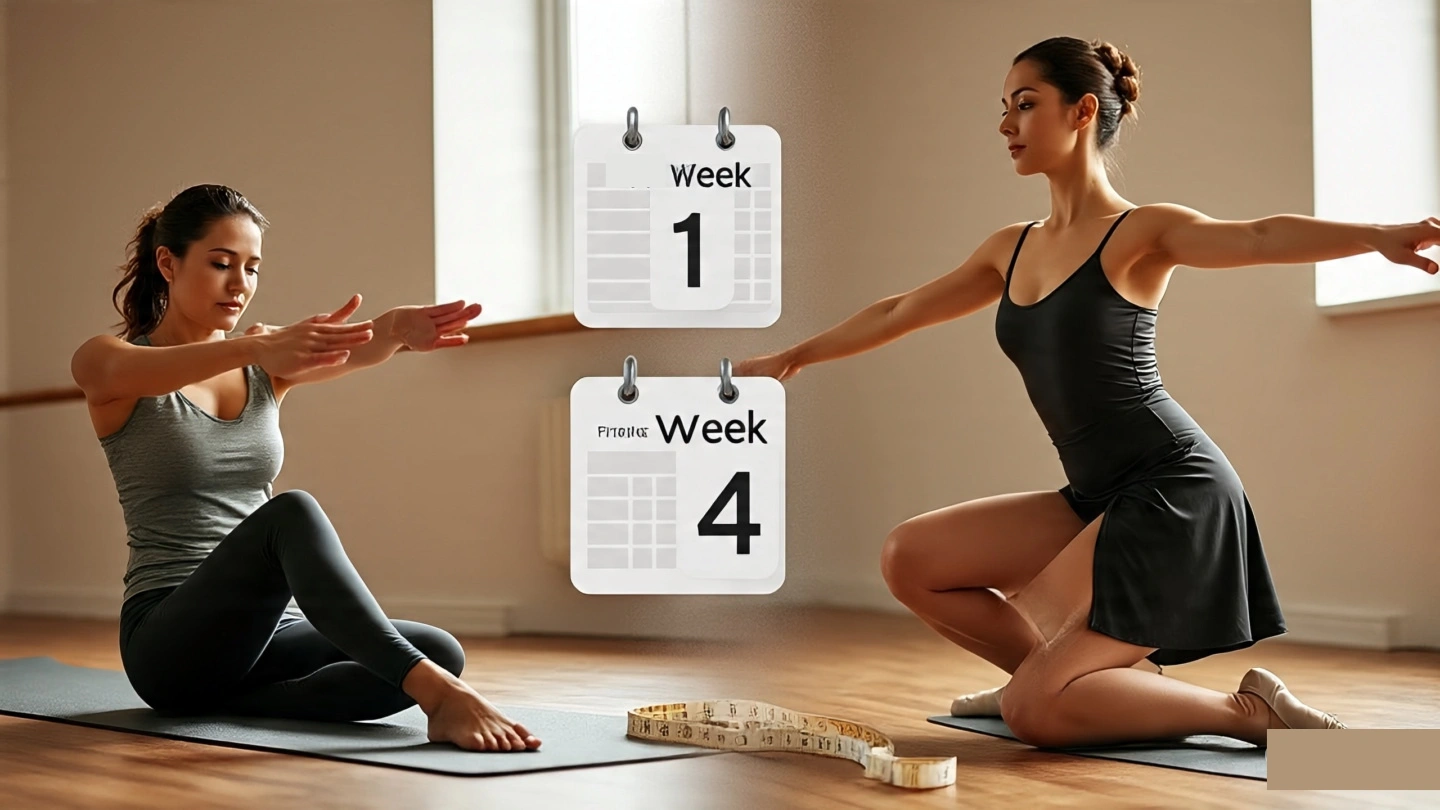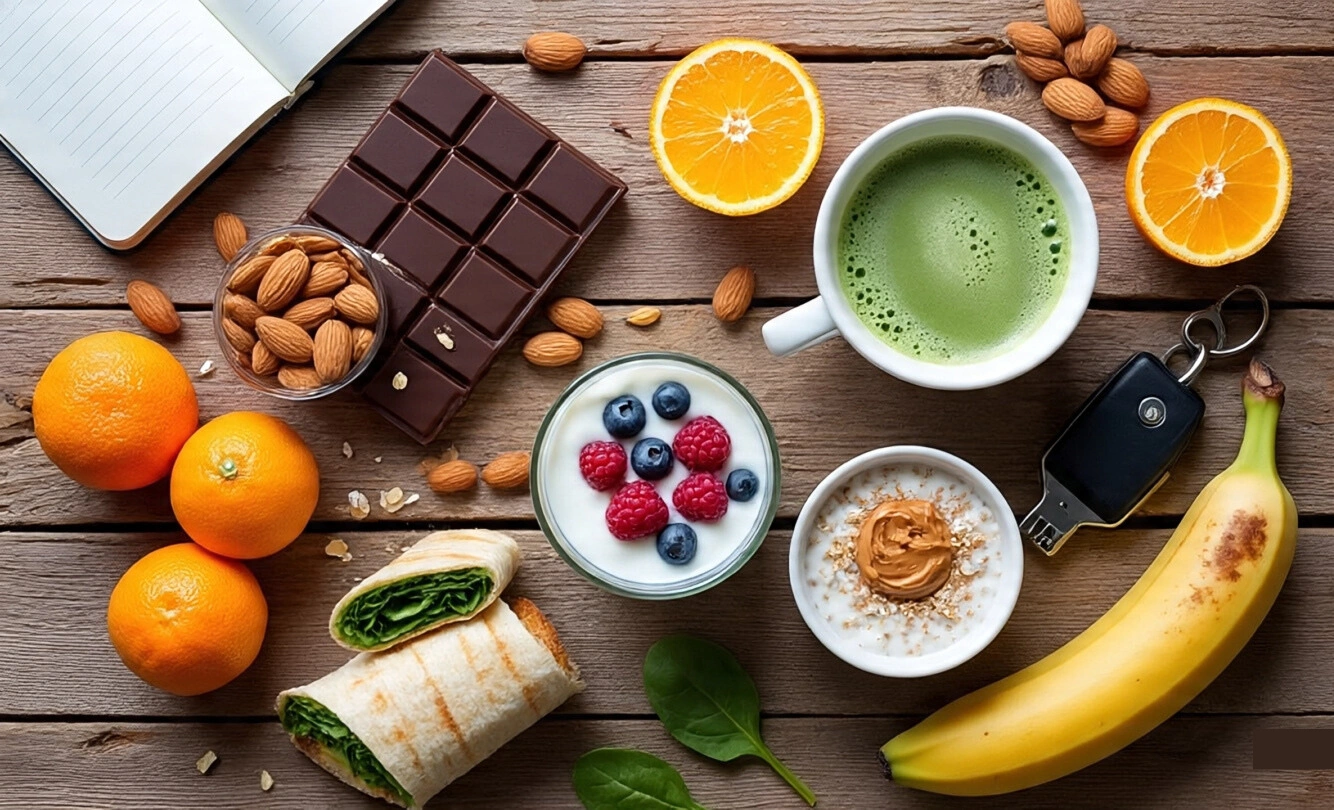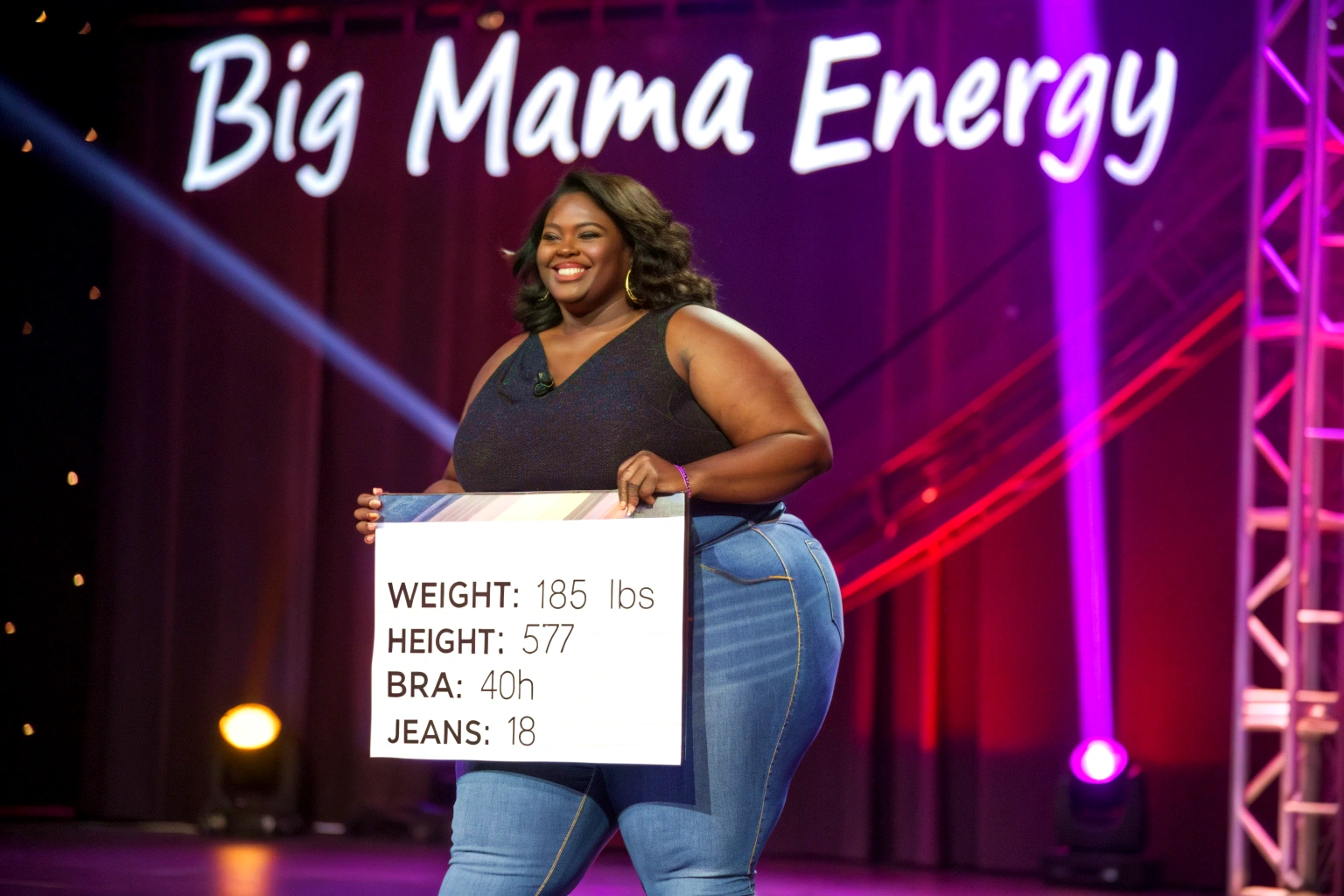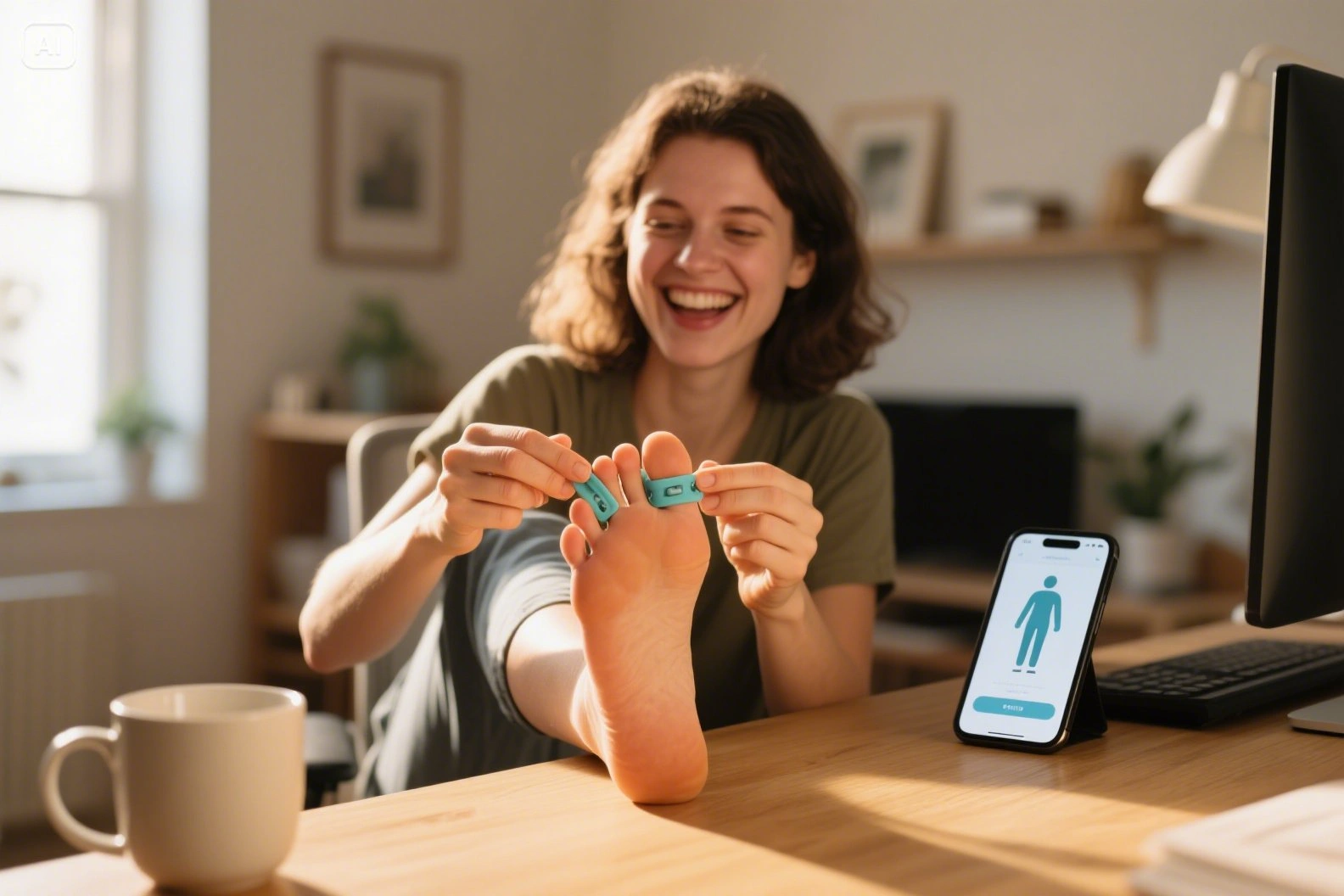Why a High-Protein Diet After 30 Could Transform Your Health
Remember your 20s? Pizza at midnight, sugary coffees for “breakfast,” and still fitting into your jeans? Then 30 hit. Suddenly, that muffin top sticks around. Energy crashes at 3 PM. Your favorite workout feels harder.
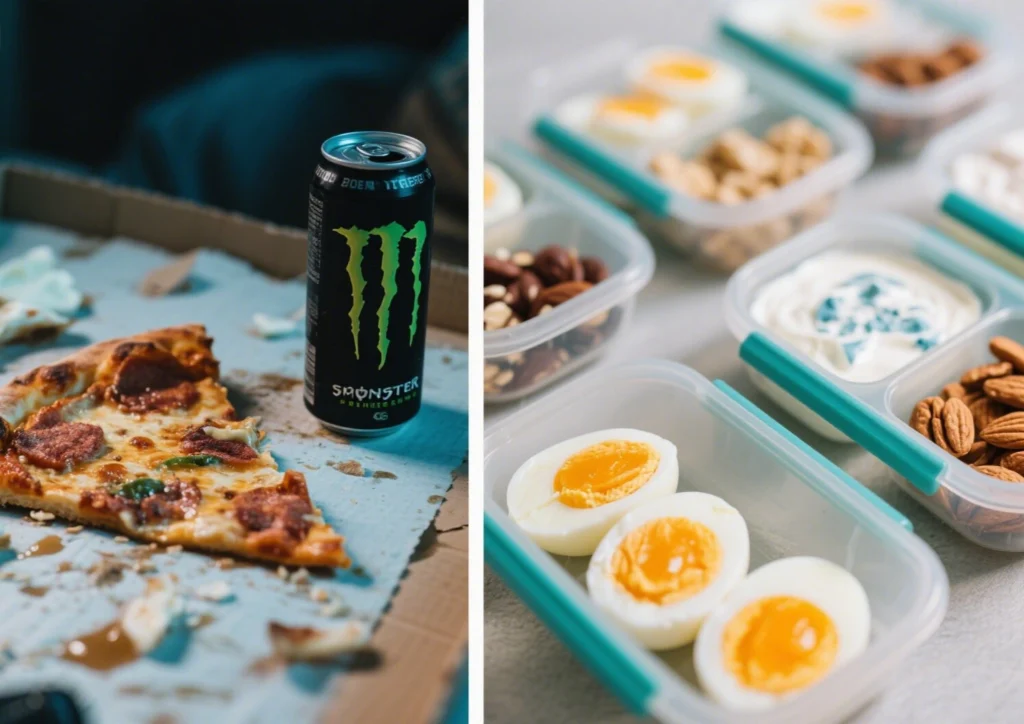
I lived this. After my 30th birthday, my body felt like a different machine. As a health coach now, I’ve seen hundreds of women experience the same shift. The solution isn’t magic—it’s protein. And embracing high protein benefits after 30 can genuinely transform your health.
Why Your 30s Change Everything
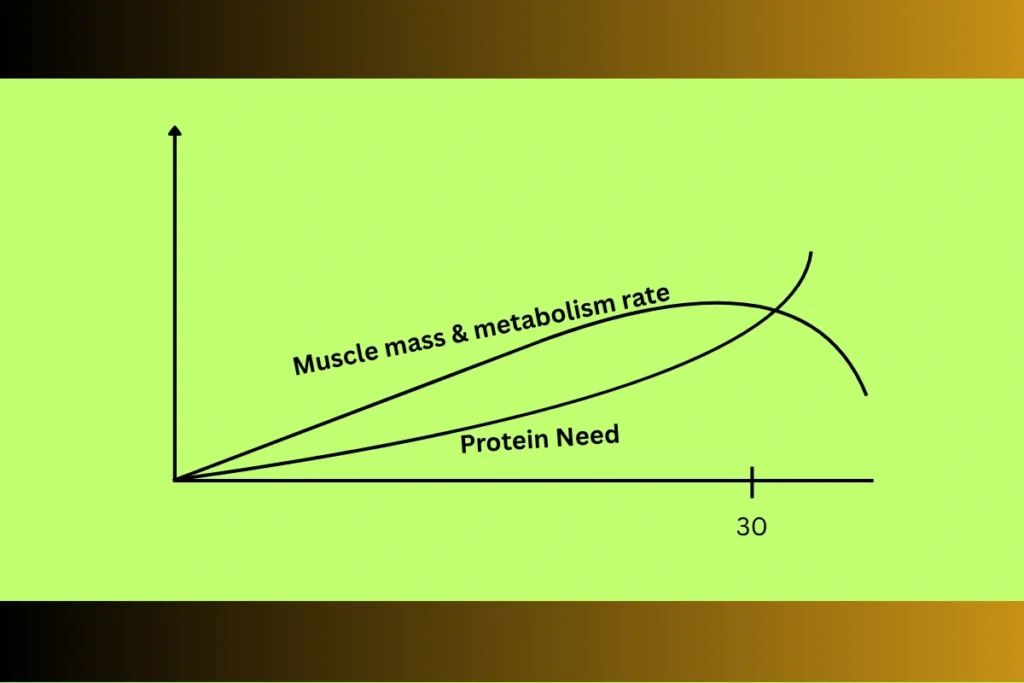
Around 30, our bodies undergo a silent revolution. Muscle mass naturally declines by 3-8% per decade. Metabolism slows. Hormones like estrogen and progesterone start fluctuating. These changes aren’t flaws—they’re biology.
Protein combats this. It rebuilds muscle, stabilizes blood sugar, and even boosts metabolism. Yet most women eat far less than they need. The RDA (46g/day) is a bare minimum. Research shows women over 30 thrive on 25-30g per meal.
The Life-Changing High Protein Benefits After 30

Let’s get specific. Prioritizing protein delivers five game-changing perks:
- Metabolism Ignition
Muscle burns more calories than fat. Period. Eating enough protein preserves lean muscle as you age. This keeps your metabolic engine humming. One study found women who doubled their protein intake lost 70% more fat! - Bye-Bye, Sugar Crashes
Protein slows sugar absorption. Pair it with carbs (like an apple with almond butter), and you avoid energy rollercoasters. No more 3 PM zombie mode. - Stronger Bones
Osteoporosis isn’t just about calcium. 50% of bone is protein! Adequate intake improves bone density, reducing fracture risk later. - Wrinkle-Fighting Power
Collagen—your skin’s support structure—is pure protein. Eating enough supports elasticity and hydration. Nature’s Botox! - Satiety That Lasts
Protein triggers fullness hormones better than carbs or fats. You’ll snack less and feel more satisfied.
Busting 3 Protein Myths
Myth 1: “It’s for bodybuilders.”
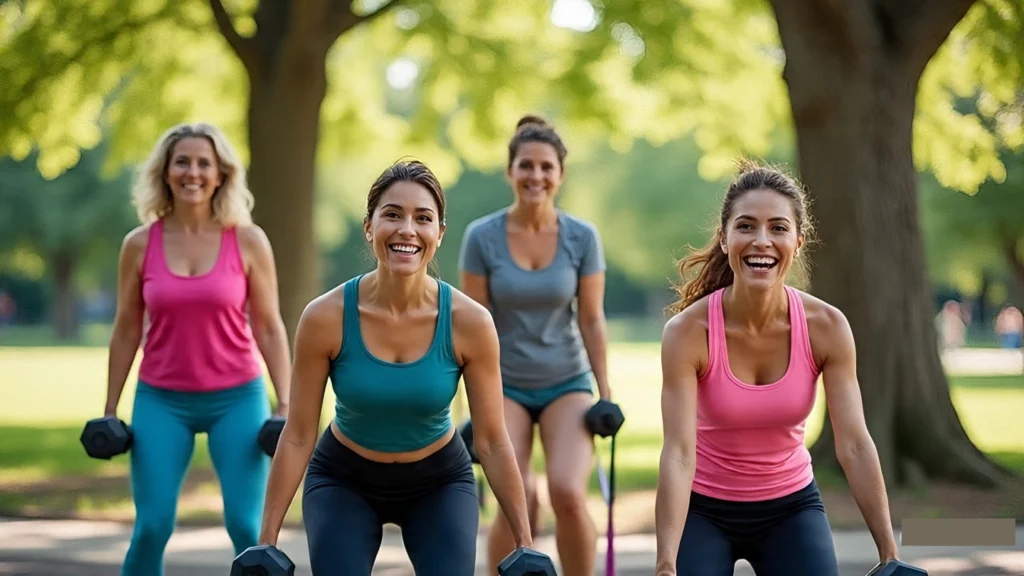
False! Protein supports every cell. Think hair growth, immune function, hormone balance.
Myth 2: “It wrecks kidneys.”
Healthy kidneys handle high protein just fine. Always check with your doctor, but this fear is overblown.
Myth 3: “Plant proteins don’t count.”
They absolutely do! Combine lentils with rice or hummus with whole wheat for complete amino acids.
Easy Ways to Eat More Protein
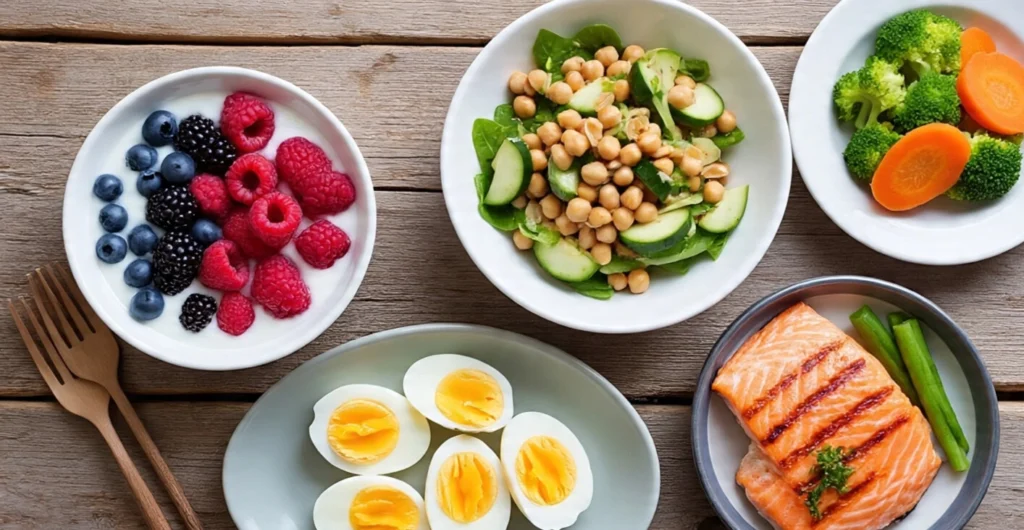
Forget chalky shakes. Try these simple tweaks:
- Breakfast: Swap cereal for Greek yogurt with berries (20g protein).
- Lunch: Add chickpeas to salads or choose lentil soup (15-20g).
- Snacks: Hard-boiled eggs, cottage cheese, or a handful of almonds.
- Dinner: Serve salmon or tofu (palm-sized portion = 25-30g).
Prioritize whole foods. If using powder, pick clean options like whey isolate or pea protein.
Your Personal Protein Blueprint
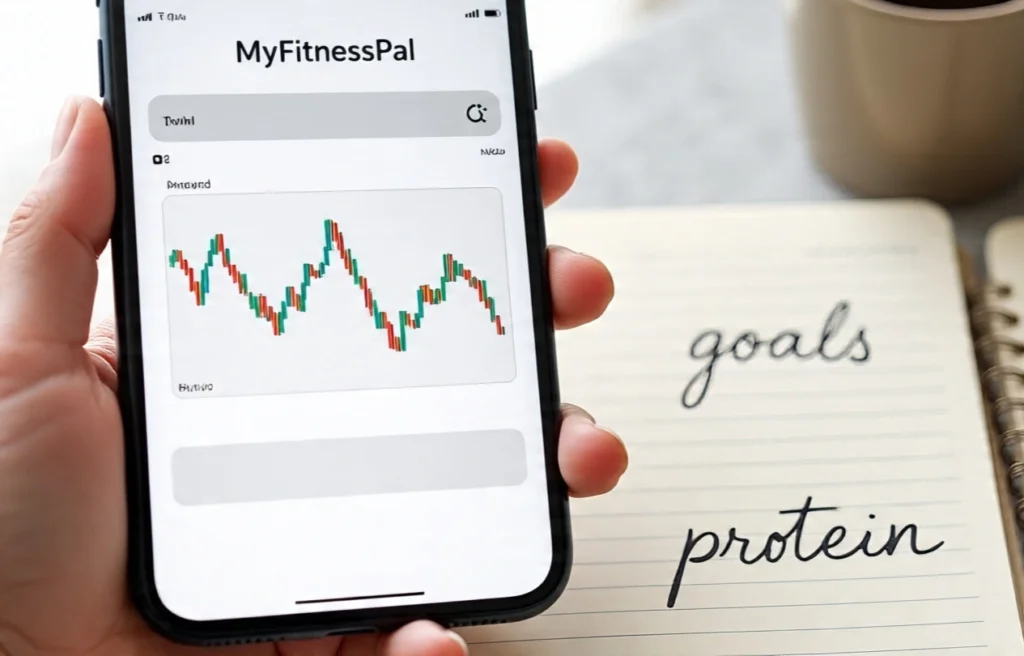
Start small. Add 10g extra protein daily for a week. Notice how you feel. Then increase gradually.
Track your intake using apps like MyFitnessPal. Aim for 1.6-2.2g per kilogram of body weight. For a 150-lb woman, that’s 109-150g daily.
Listen to your body. More energy? Better sleep? Firmer muscles? That’s the high protein benefits after 30 in action!
Embrace the Protein Shift
Turning 30 isn’t about decline—it’s about empowerment. Protein gives your body the tools to thrive through hormonal shifts, busy careers, and raising families. It’s the anchor of sustained energy, strength, and radiant health.
So raise your protein shake (or grilled chicken salad!). Honor your changing body with nourishment it deserves. The best chapter starts now.
FAQs..
After 30, muscle mass declines 3-8% per decade. Protein preserves muscle, boosts metabolism, and fights age-related fatigue.
Key benefits include faster metabolism, stable energy, stronger bones, better skin elasticity, and reduced cravings.
Aim for 1.6-2.2g per kg of body weight daily. A 150-lb woman needs 109-150g – far above the RDA minimum.
Absolutely! Pair lentils with rice or hummus with whole wheat for complete amino acids. Plants add fiber too.
Yes. 50% of bone is protein. Adequate intake improves density, reducing osteoporosis risk later.
No evidence shows protein harms healthy kidneys. Those with existing conditions should consult a doctor.
Try Greek yogurt with berries (20g), scrambled eggs with veggies (15g), or protein oatmeal (25g).
Protein builds collagen for skin elasticity and preserves muscle for a toned appearance. Nature’s fountain of youth!
Yes! Protein slows sugar absorption. Pair it with carbs (apple + almond butter) for steady energy.
Distribute 25-30g per meal. Post-workout (within 30 mins) maximizes muscle repair.

Christmas Nail Design 2025 Innovative Trends

Fall 2025 Nail Design Trends

DIY Outdoor Christmas Decor : Easy & Magical Ideas

DIY Holiday Decor Hacks : 12 Festive Crafts You Can Finish in an Hour

What Are the Top 2025 Halloween Costume Ideas for US Women?

Your Tiny House Can Be Your Gateway to the Greener Life

The Cutest Family Dog Breeds for Your Home and Heart
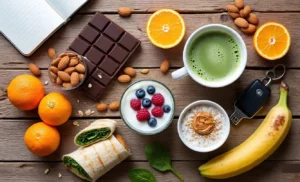
10 Stress-Busting Snacks to Eat During a Hectic Day (That Actually Work!)

Why a High-Protein Diet After 30 Could Transform Your Health
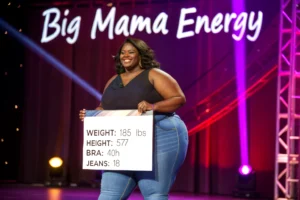
Big Mama Energy : 7 Body Stats Women are Proudly Flaunting (Thanks, Latto!)

Waist Slimming Workouts: Slow Pilates vs. Balletcore (4-Week Results)

7 Cherry-Coded Approved Lip Tricks for Featherproof Color That Lasts Through Meals

This Simple Trick Changed How I Style Coastal Fashion Forever
Why Some Podiatrists Quietly Recommend Toe Spacers for Gut Health (The 3-in-1 Fix Big Shoe Brands Hate)

Why Everyone is Suddenly Talking About the “I Grieve Different” TikTok Trend
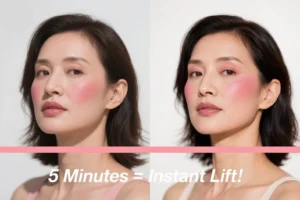
The 5-Minute Blush Trick That Makes You Look Like You Spent Hours on a Professional Makeover

Scalp Gua Sha Ritual: Melt Stress and Grow Hair Like TikTok’s Secret Masters

I Tried a Red Light Eye Mask for 42 Days : Results Were Stupidly Obvious

10 Signs You’re Dealing With a Negative Nancy (And How to Handle Them)


